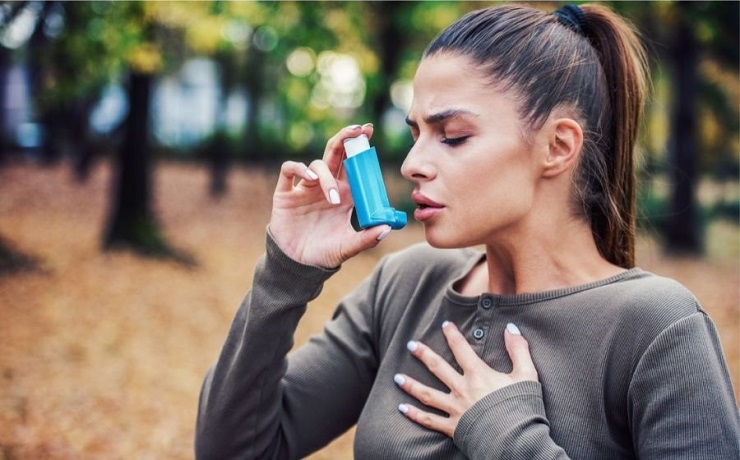Voice analysis could help spot signs of worsening asthma
- Clinical Research communications team
- May 26, 2022
- 2 min read

Asthma patients could one day use a smartphone app to manage their condition, after Southampton researchers used voice recordings to check lung health and detect issues.
Southampton researchers, including Profs Judith Holloway and John Holloway from the NIHR Southampton Biomedical Research Centre and Dr Faisal Rezwan (now at Aberystwyth University), have successfully detected signs of worsening asthma using voice recordings.
The method they developed uses machine learning – a type of artificial intelligence (AI) where computer systems use patterns in data to ‘learn’ without following explicit instructions.
The results, published in Frontiers in Digital Health, could pave the way for smartphone apps that people with asthma could use to check their own lung health.
Avoiding asthma deaths
Asthma is extremely common, with around one in 11 children and one in 12 adults currently treated for it in the UK. It can also be deadly – every 10 seconds at least one person has a potentially life-threatening asthma attack, with an average of three people dying from it every day.
Regular monitoring of asthma can help patients receive appropriate treatment in time. Treatment makes symptoms milder and less frequent, and reduces the need for trips to hospital.
Yet it’s not always easy to spot the signs of worsening asthma symptoms. Methods exist that allow asthma patients to check their own lung health using a smartphone app. But these require specialist equipment, such as a smart spirometer, which is expensive.
Using voice recordings offers the advantage that it doesn’t need any extra equipment, allowing people with asthma to quickly and easily check their symptoms whenever they need to.
Detecting worsening asthma
The researchers analysed 323 voice recordings from 26 people with mild asthma. Those who took part breathed in the drug methacholine, which simulates an asthma attack by causing the airways to narrow - a standard test used to diagnose and monitor asthma.
The researchers measured how well their lungs worked afterwards using a spirometer, which measures how much air you can breathe out in one forced breath. They then recorded their voices for a minute while they read standard texts.
They used 70% of the recordings to train the computer system, using three different machine learning algorithms to analyse patterns in speech and breathing and identify features linked with worsening asthma.
The remaining 30% of recordings were used to test how well each of the three algorithms could detected lung problems. One worked best, giving an accurate result 85 percent of the time.
Prof John Holloway said: “These results are extremely promising, and pave the way for a new voice-analysing app for asthma patients to monitor their condition and for assessing severity of other lung diseases including COVID.
“Such an app would be particularly useful in low resource countries where expensive smart spirometers are not available could help patients them spot the signs of an asthma attack so they can quickly treat it, for example by using their inhaler, to stop it getting worse and physicians to remotely monitor patients’ symptoms. This would save lives.”



Comments